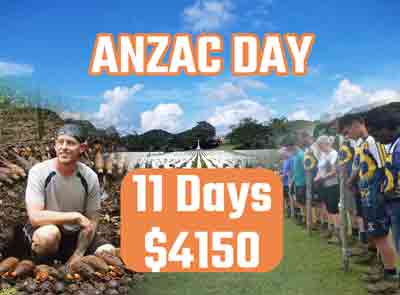Kokoda Air Strikes: Allied Air Forces in New Guinea, 1942 By Anthony Cooper
Introduction
In the annals of World War II campaigns in New Guinea, one stands out as a testament to courage, sacrifice, and the indomitable spirit of the Australian and American airmen who flew and fought over the treacherous landscapes. Anthony Cooper’s “Kokoda Air Strikes” delves deep into the heart of the conflict, dissecting the single air campaign that began with the Japanese conquest of Rabaul in January 1942. In this article, we’ll explore the key themes presented by Cooper in this compelling narrative.
The Early Battles: Conquest of Rabaul
The story of the early battles is crucial to understanding the context of the Kokoda air strikes. Cooper meticulously outlines the Japanese conquest of Rabaul in January 1942, a pivotal moment that set the stage for the air war over New Guinea. The poorly set up and exposed airfields became the battleground for Australian and American airmen, persisting despite extreme exhaustion and the near certainty of being murdered by their Japanese captors if they went down in enemy territory.
The Crucial Role of Allied Air Forces in New Guinea
Cooper’s narrative shines a forensic eye over the role that Allied air forces played – or failed to play – in the face of adversity. The air war over New Guinea, particularly in the Coral Sea and the South West Pacific Theatre, becomes a vivid backdrop to the struggles of these brave men. The defence of Milne Bay, the conquest of Rabaul, and the battles of the Coral Sea and Guadalcanal all find a place in this detailed account.
Australian and American Airmen: Facing Adversity
The author skilfully presents the story of both Australian and American airmen who flew and fought in the face of incomplete training, poor morale, inadequate aircraft, and sickness. The real battle for Australia unfolded in the skies over New Guinea, and Cooper’s dispassionate narrative captures the essence of their struggle.
Darwin Spitfires: A Forensic Examination
“Kokoda Air Strikes” also explores the role of Australian Spitfire pilots and their contribution to the air war over New Guinea. Cooper, a former glider pilot instructor and a Brisbane schoolteacher, brings a unique perspective to the narrative. His bestselling work, “Darwin Spitfires,” casts a forensic eye over the defence of Darwin, revealing the challenges faced by the Australian forces.
The Author’s Perspective: A Blend of History and Expertise
Anthony Cooper, a Brisbane schoolteacher with a Ph.D. in German aviation history, is no stranger to the intricacies of wartime narratives. His attention to detail and dedication to historical accuracy are evident in his writing. The author’s expertise is not only recognized by readers but also acknowledged with the Northern Territory Chief Minister’s NT History Book Award.
Conclusion – A Great Book by Anthony James Cooper
In conclusion, “Kokoda Air Strikes” by Anthony Cooper is a must-read for anyone seeking a comprehensive understanding of the crucial World War II campaigns in New Guinea. Cooper’s ability to weave the complex threads of history into a coherent and engaging narrative is commendable. The book stands as a testament to the valour of the Australian and American airmen who faced adversity in the skies over New Guinea, defending the region with unwavering determination. Follow the author, Anthony James Cooper, on a journey through the untold stories of the Kokoda air strikes and gain a deeper appreciation for the real battle for Australia in the fall of 1942.
FAQ’s
Q: What is the book “Kokoda Air Strikes: Allied Air Forces in New Guinea, 1942” about?
A: The book explores the role of Allied air forces in the defence of New Guinea in 1942 during the Second World War, focusing on the Kokoda air strikes and their significance in the early battles of the South West Pacific theatre.
Q: Who is the author of “Kokoda Air Strikes: Allied Air Forces in New Guinea, 1942”?
A: The author of the book is Anthony Cooper, who is a Brisbane schoolteacher and has a Ph.D. in German aviation history.
Q: What is the significance of the Kokoda air strikes in the Second World War?
A: The Kokoda air strikes played a crucial role in the defence of New Guinea and the early air war in the Pacific theatre, particularly during the Battle for New Guinea.
Q: Which air forces are covered in the book “Kokoda Air Strikes: Allied Air Forces in New Guinea, 1942”?
A: The book covers the actions and contributions of the RAAF (Royal Australian Air Force) and the 5th Air Force in the New Guinea campaign.
Q: What specific events and battles are discussed in the book?
A: The book discusses the air defence of Port Moresby, the battles of the South West Pacific theatre, the air power in the Coral Sea, and the involvement of HMAS Bataan in the war.
Q: What is the author’s background and expertise?
A: Anthony Cooper, the author, is a Brisbane schoolteacher with a Ph.D. in German aviation history, and he has extensively researched and written about the early battles of the South West Pacific theatre.
Q: Why should I read “Kokoda Air Strikes: Allied Air Forces in New Guinea, 1942”?
A: The book provides a comprehensive account of the Allied air forces’ role in the New Guinea campaign and is praised for its detailed and engaging narrative of the air war in the region.
Q: Is “Kokoda Air Strikes: Allied Air Forces in New Guinea, 1942” suitable for history enthusiasts?
A: Yes, the book is well-received by history enthusiasts and those interested in the Second World War, particularly the air operations and defence of New Guinea in 1942.
Q: How does the author present the information in the book?
A: Anthony Cooper presents the information in a well-researched and engaging manner, combining historical facts with personal narratives to create a compelling account of the Allied air forces’ actions in New Guinea.
Q: Where can I find “Kokoda Air Strikes: Allied Air Forces in New Guinea, 1942”?
A: The book is available in paperback and can be found in bookstores, online retailers, and libraries, making it accessible to those interested in the history of the Pacific theatre in the Second World War.




